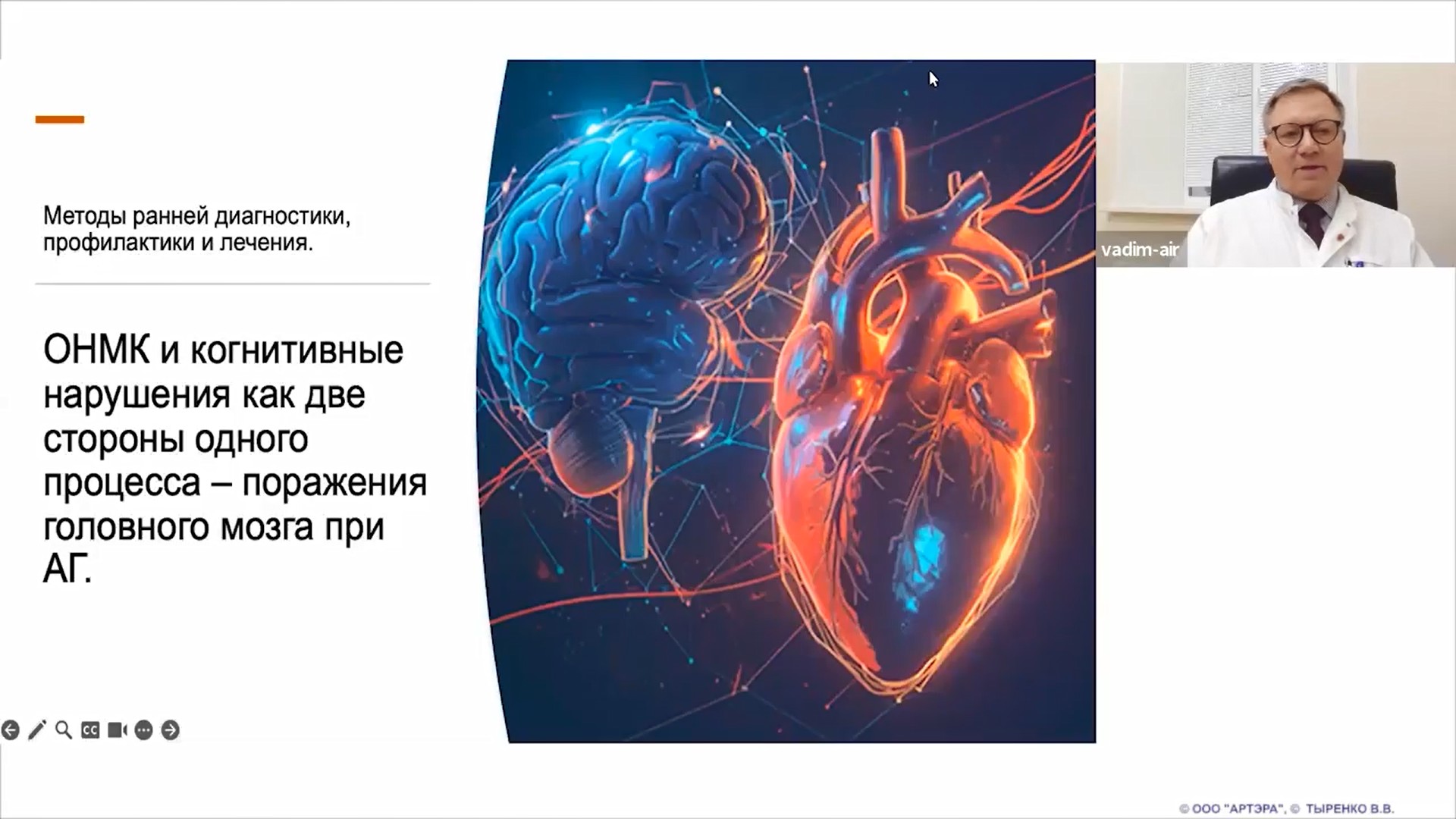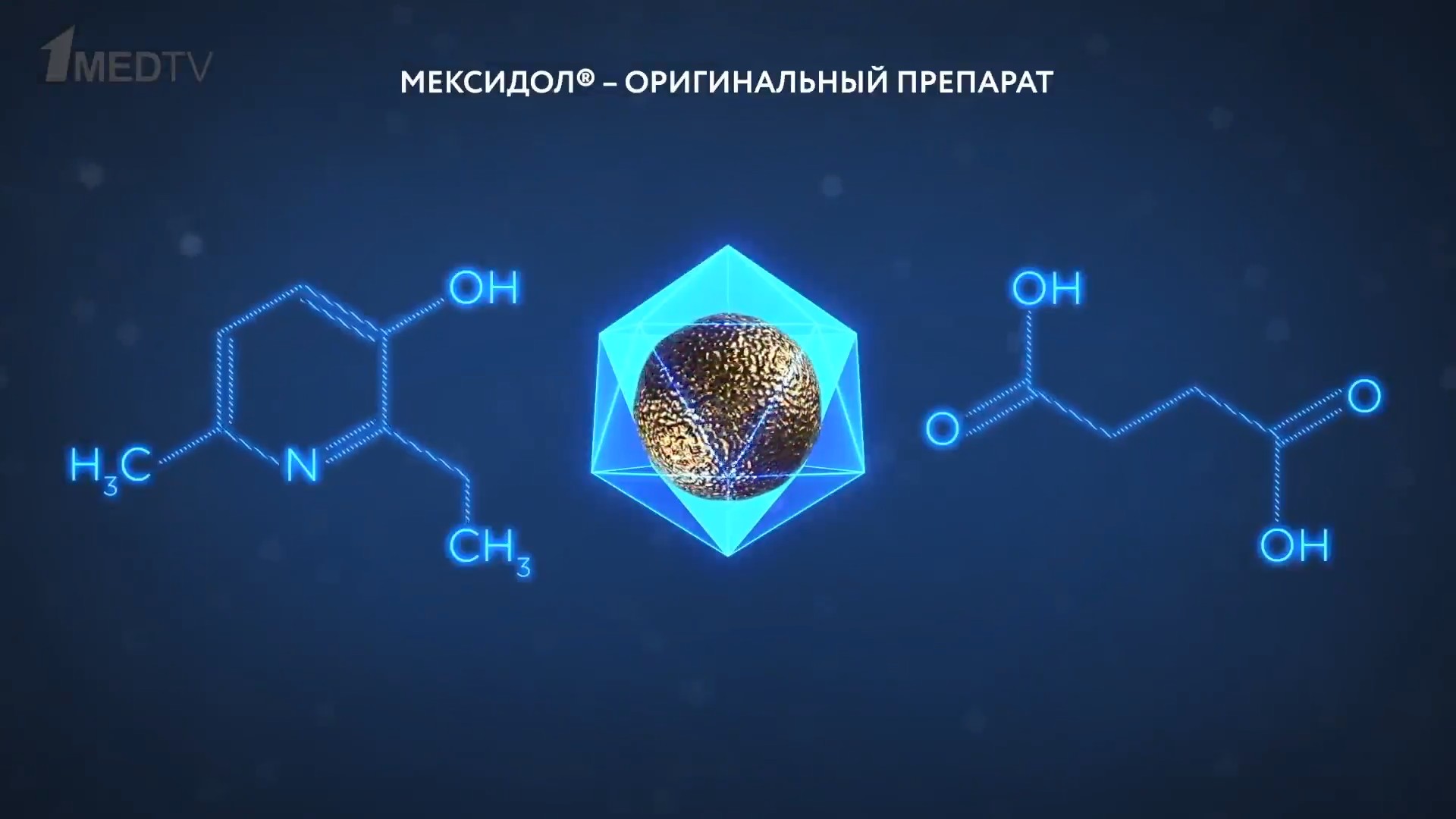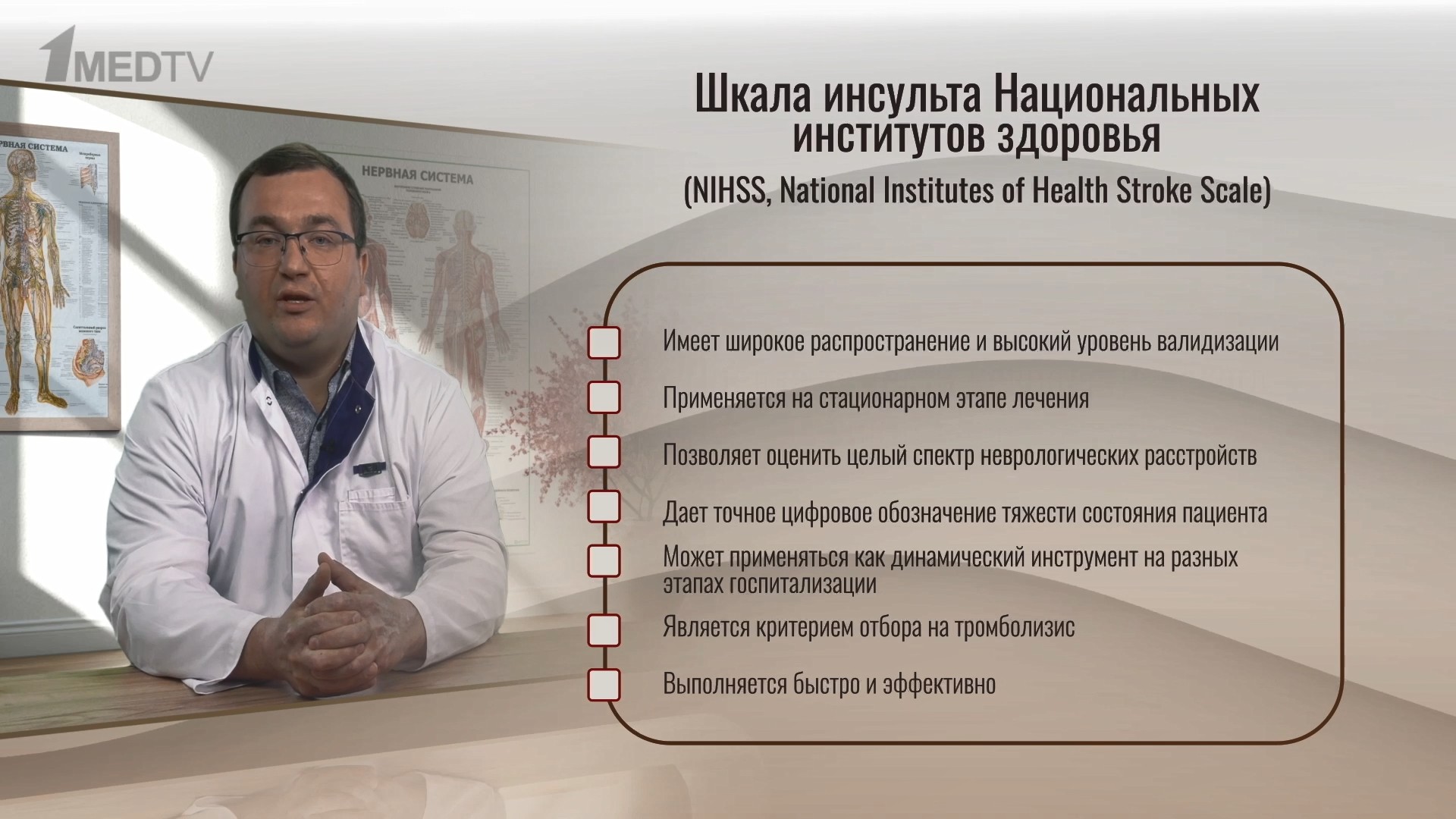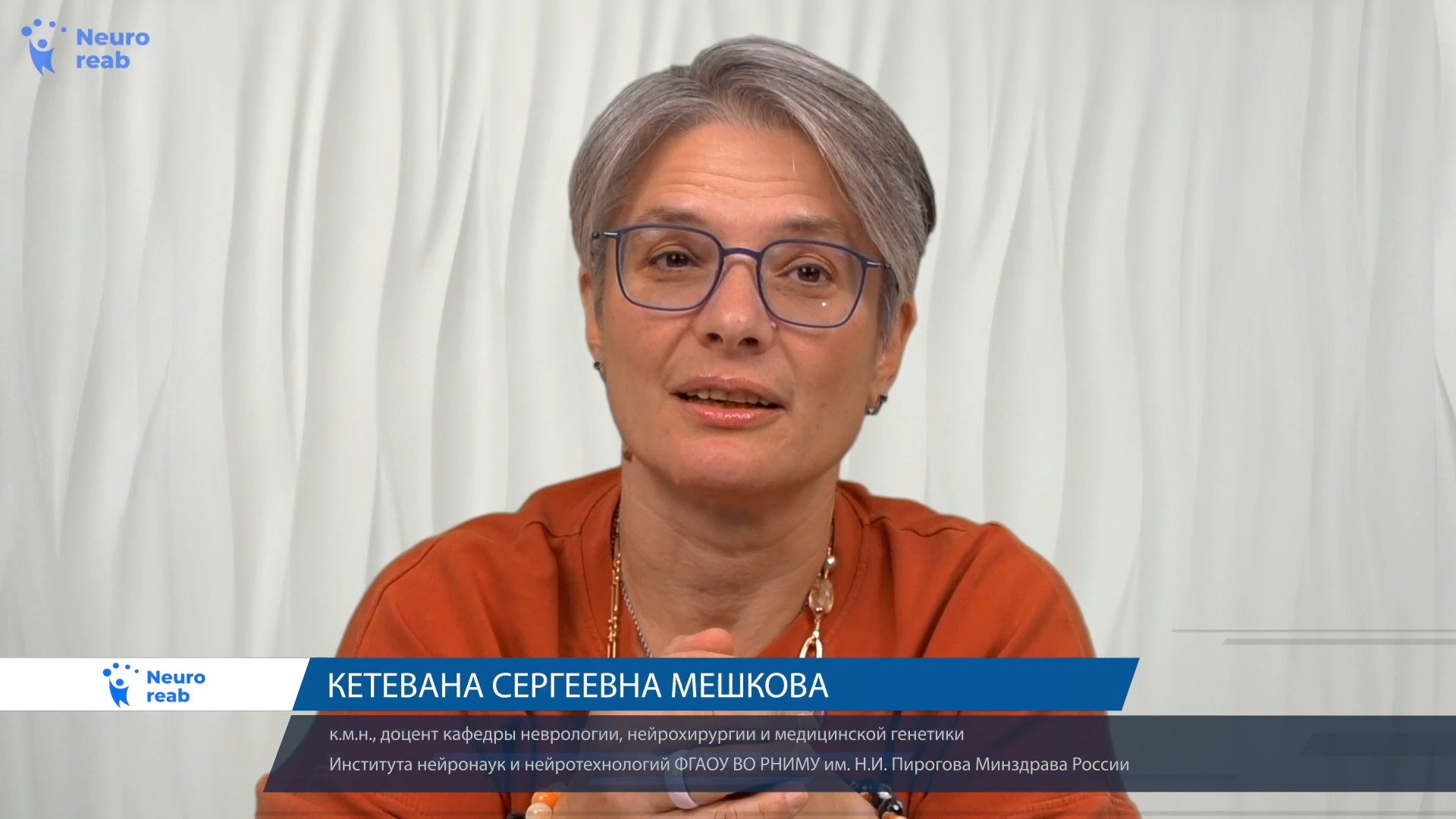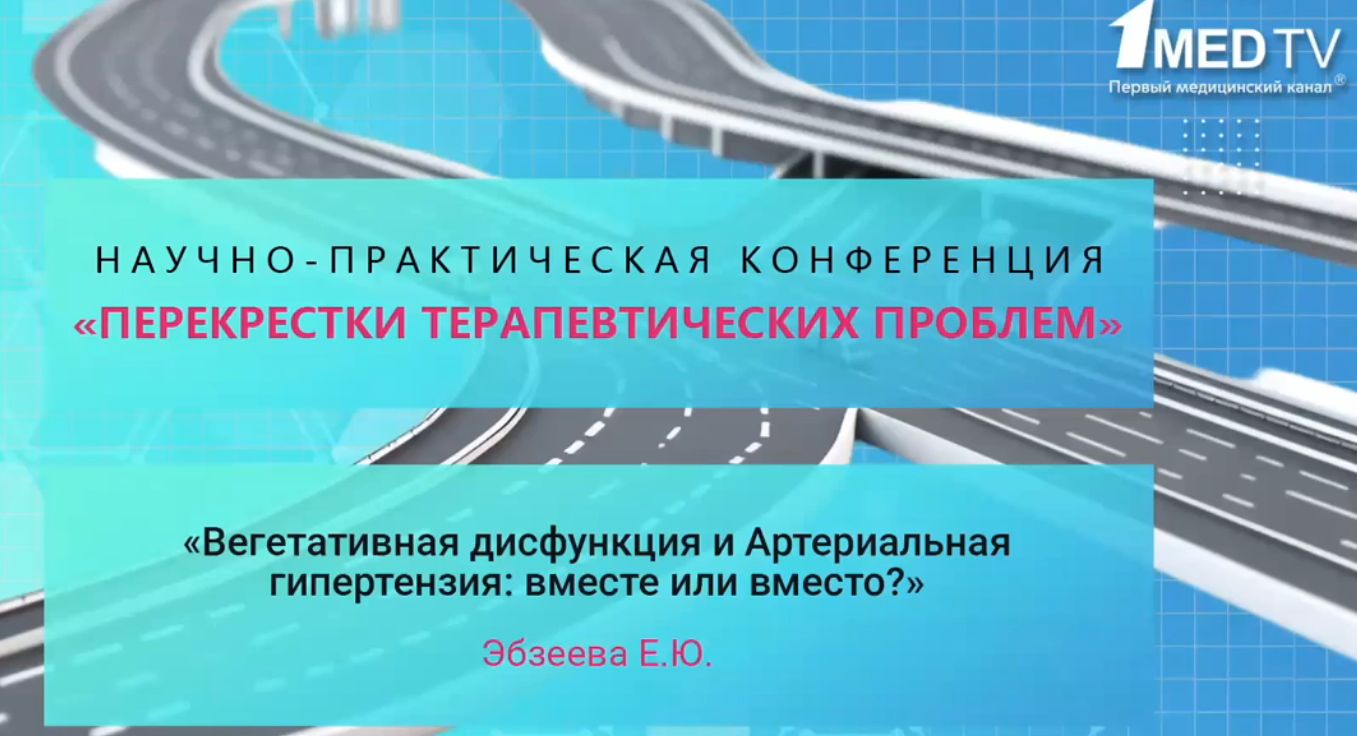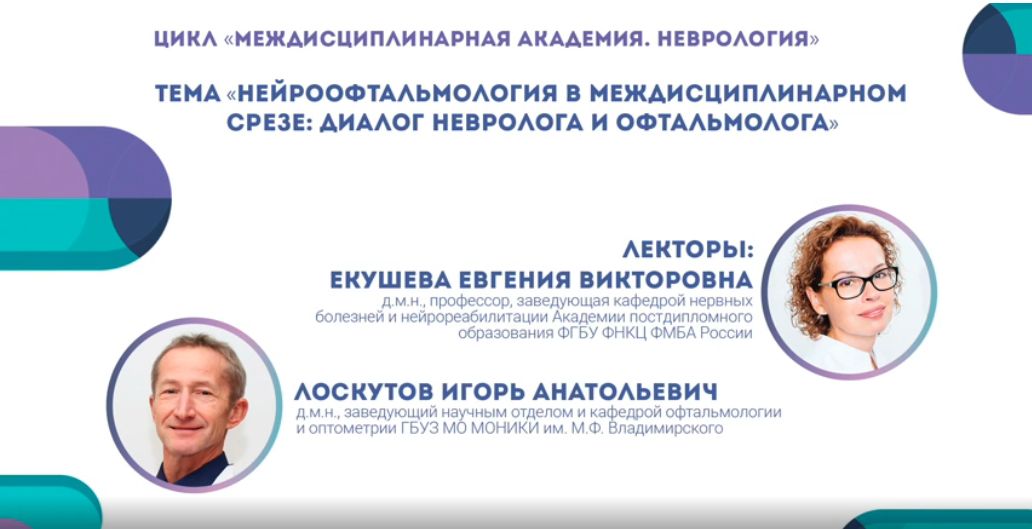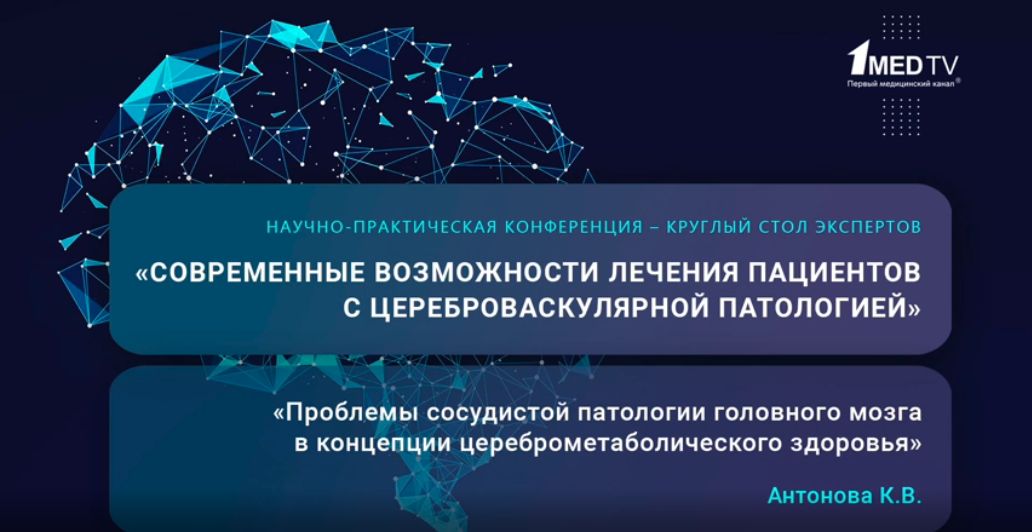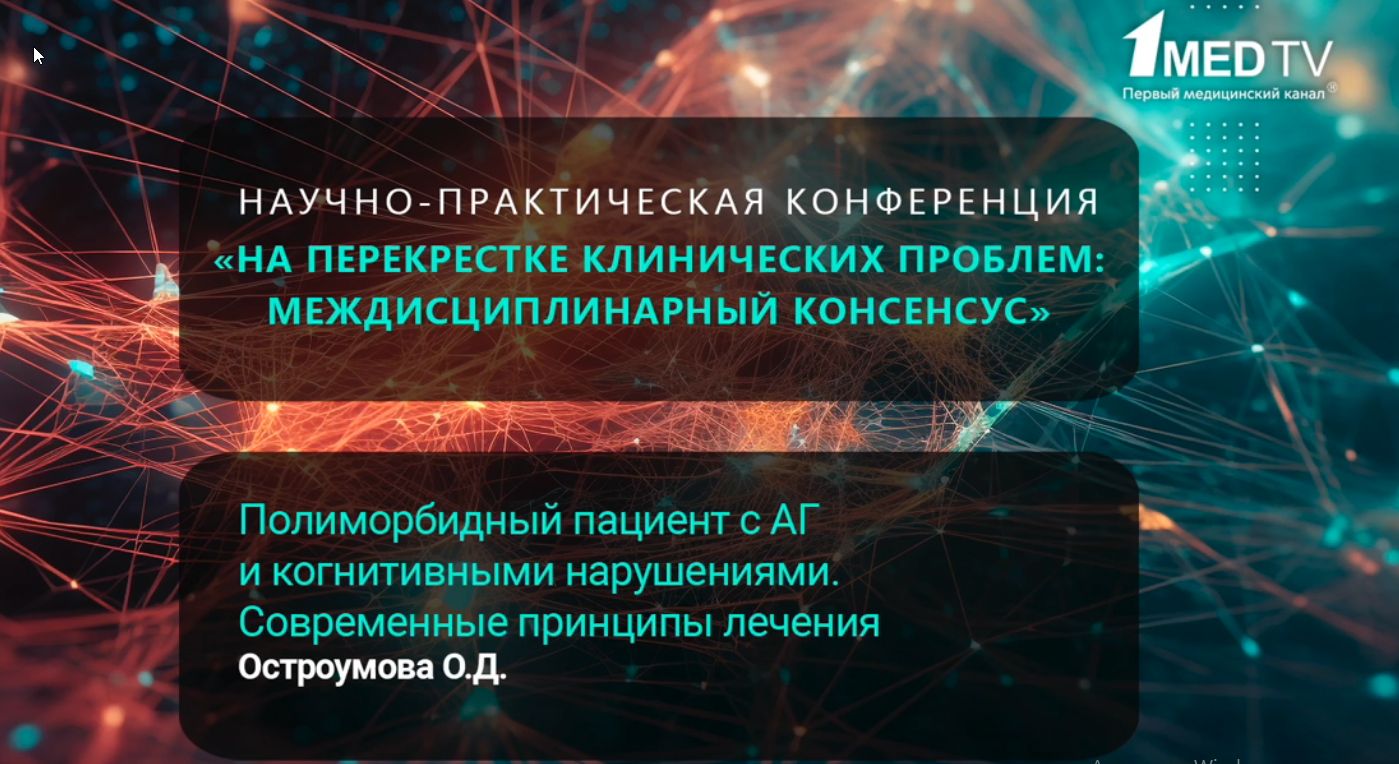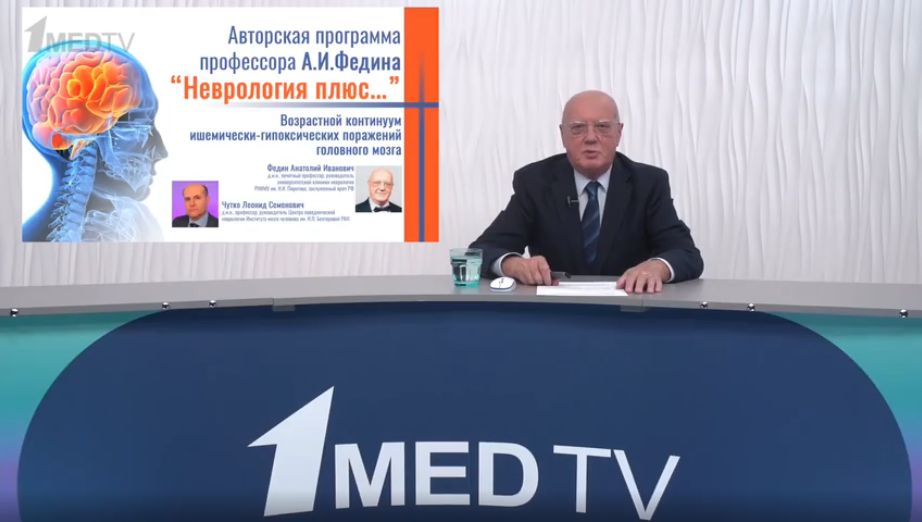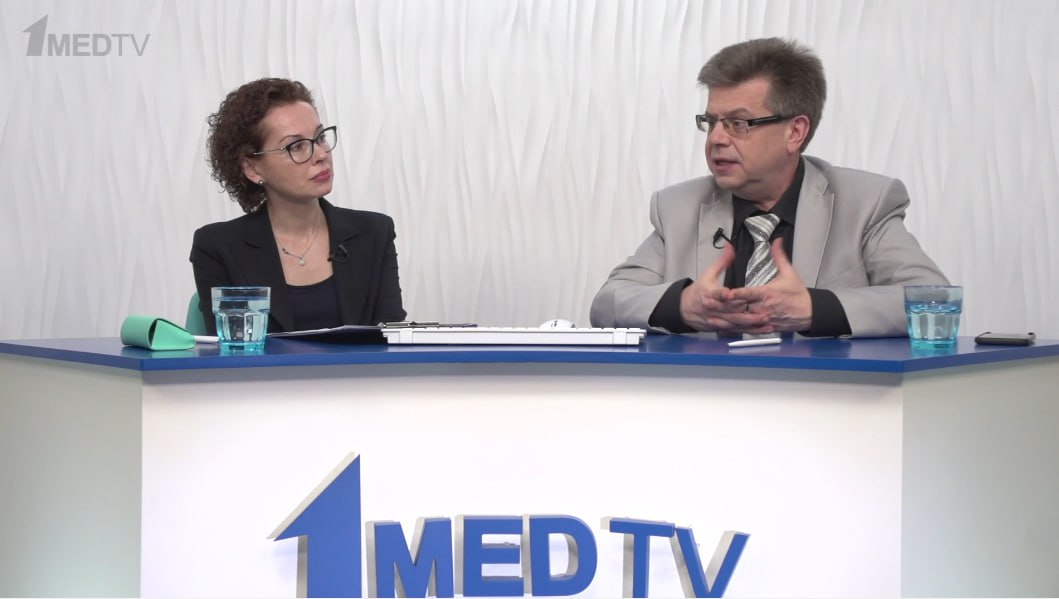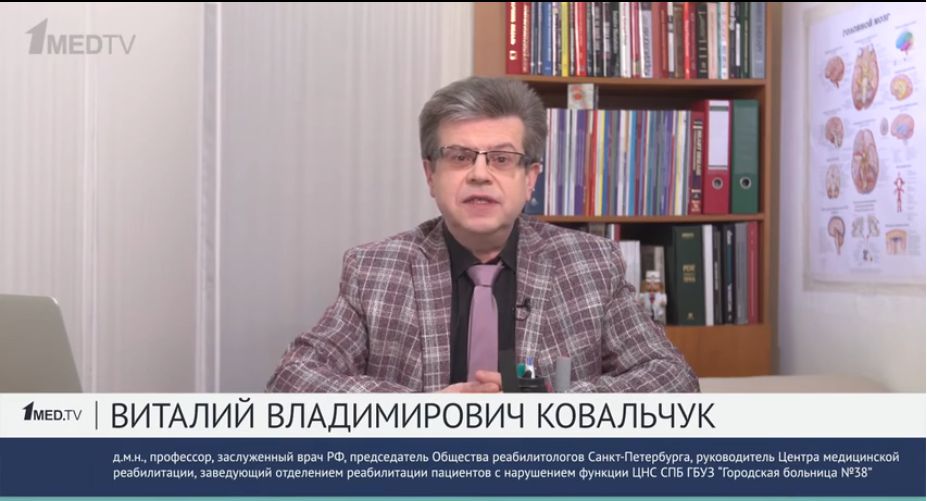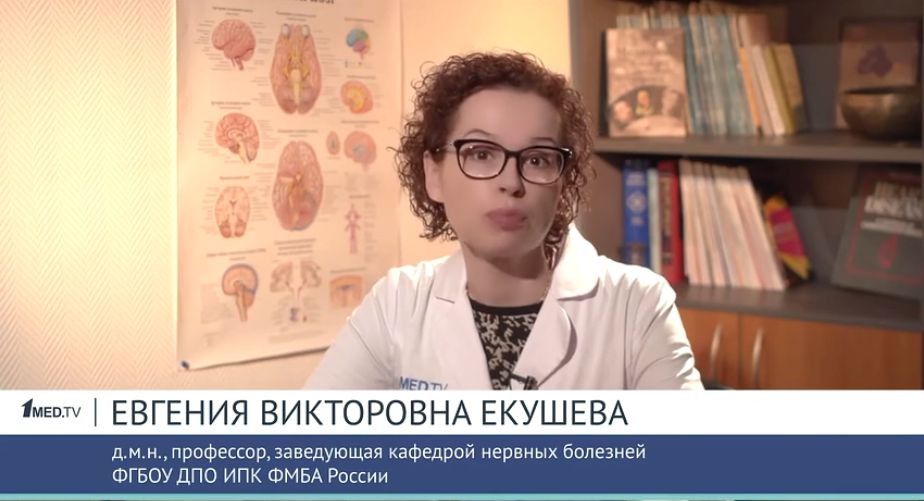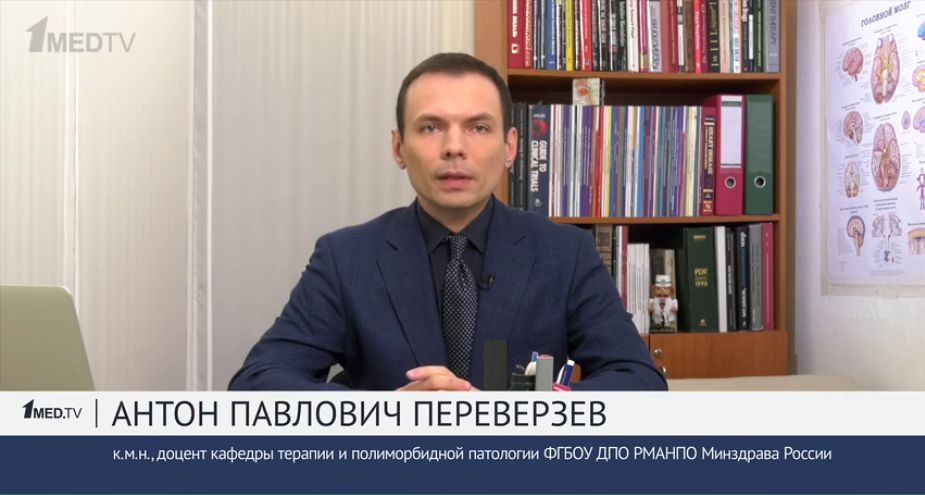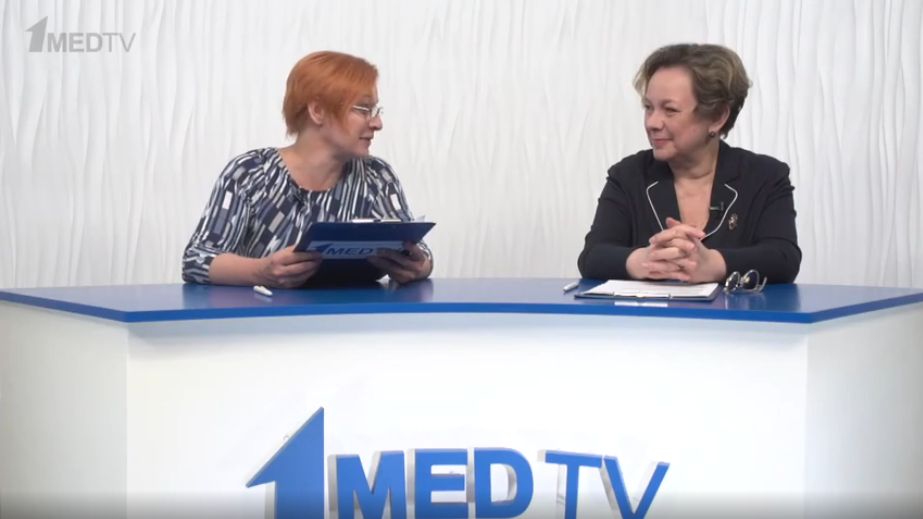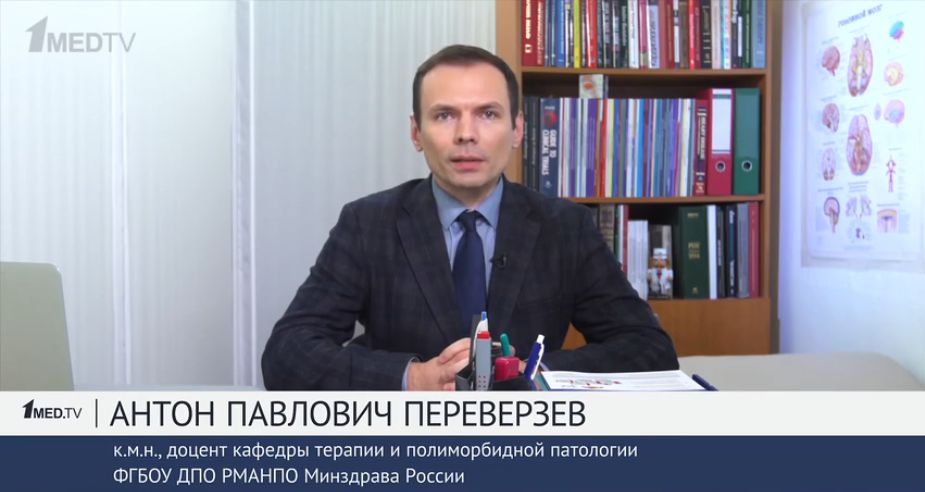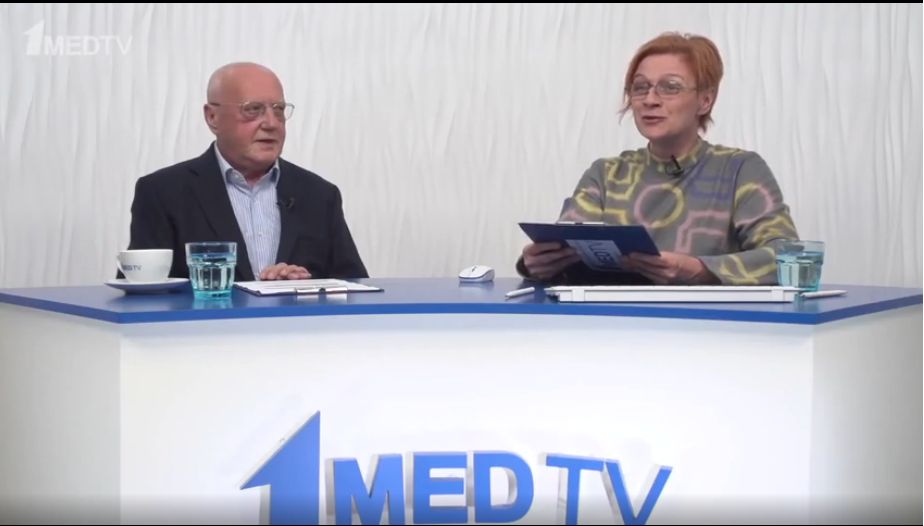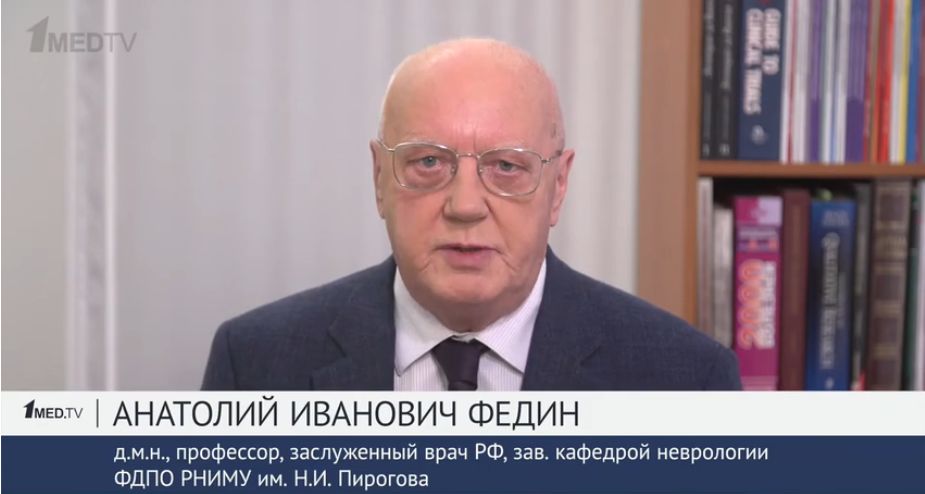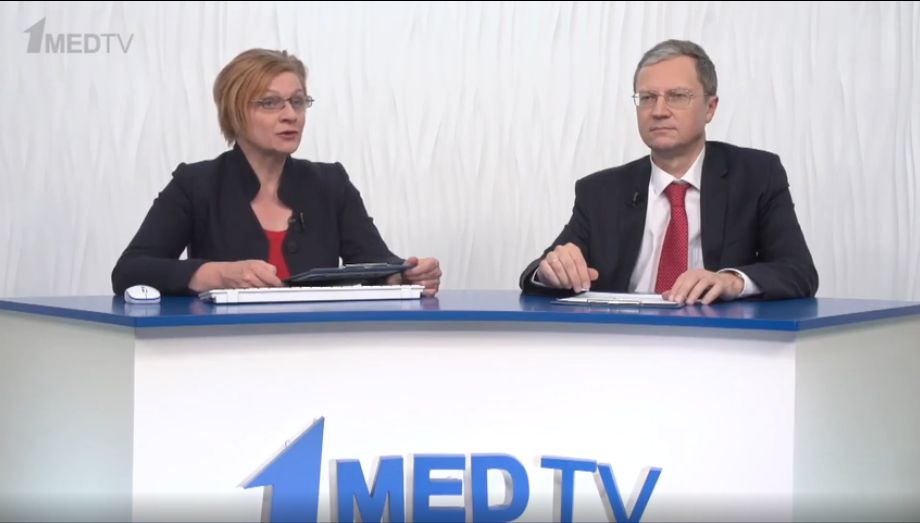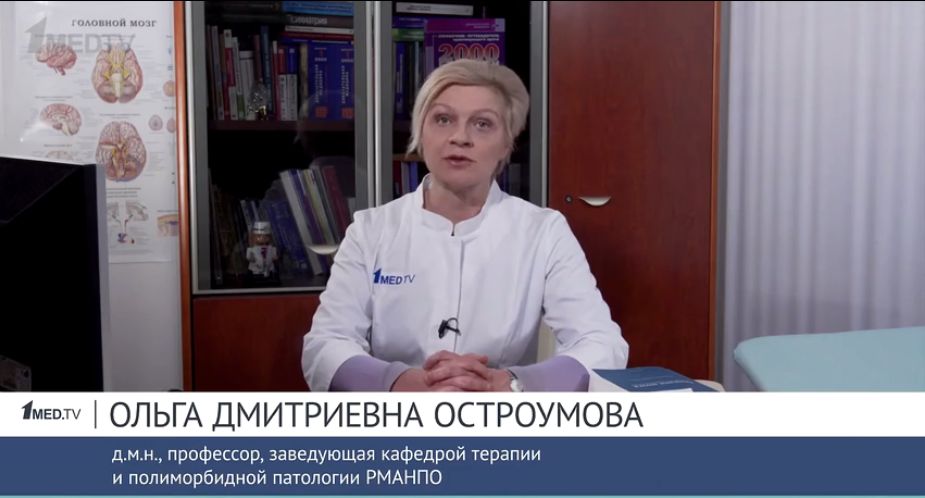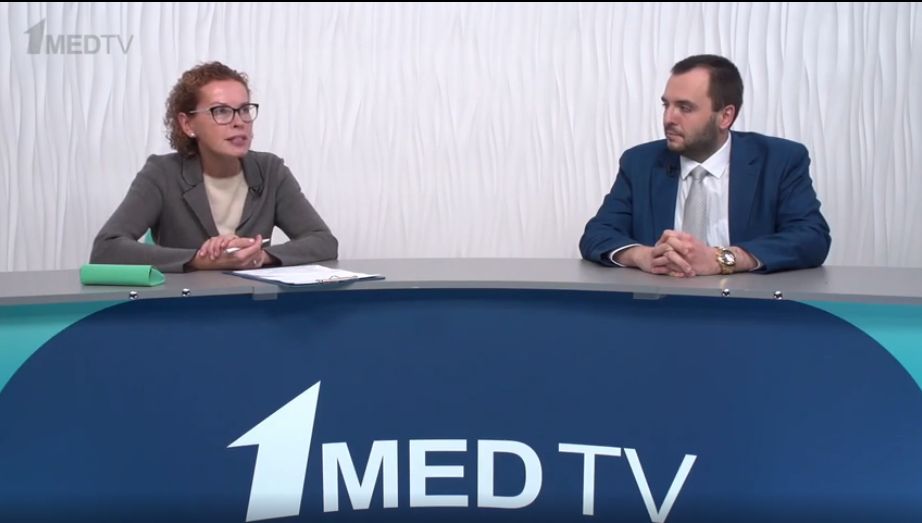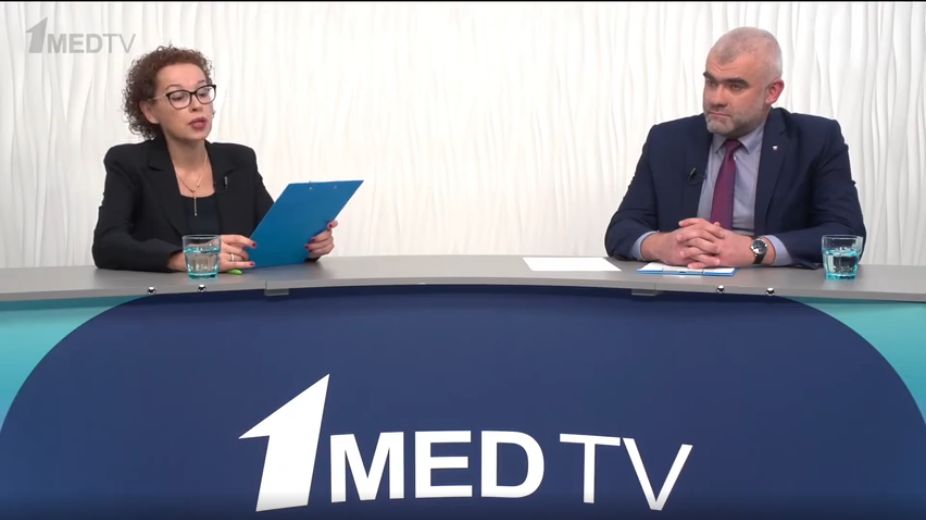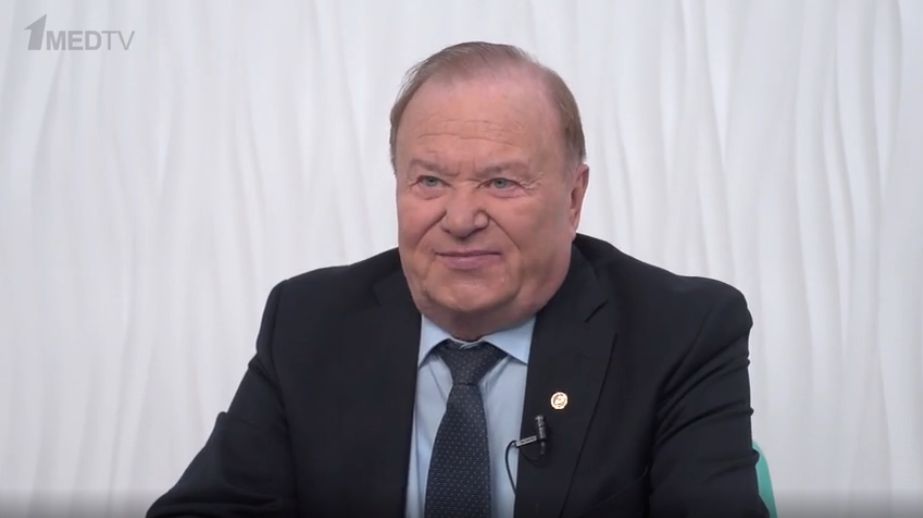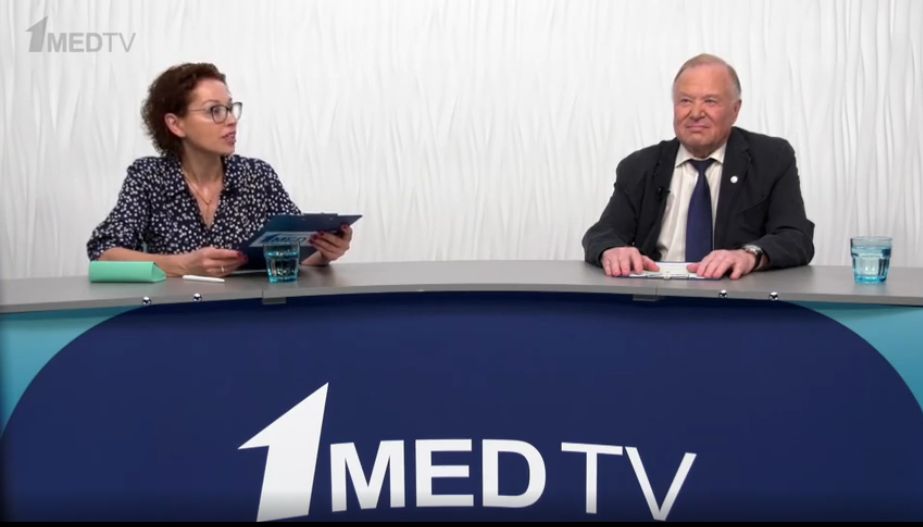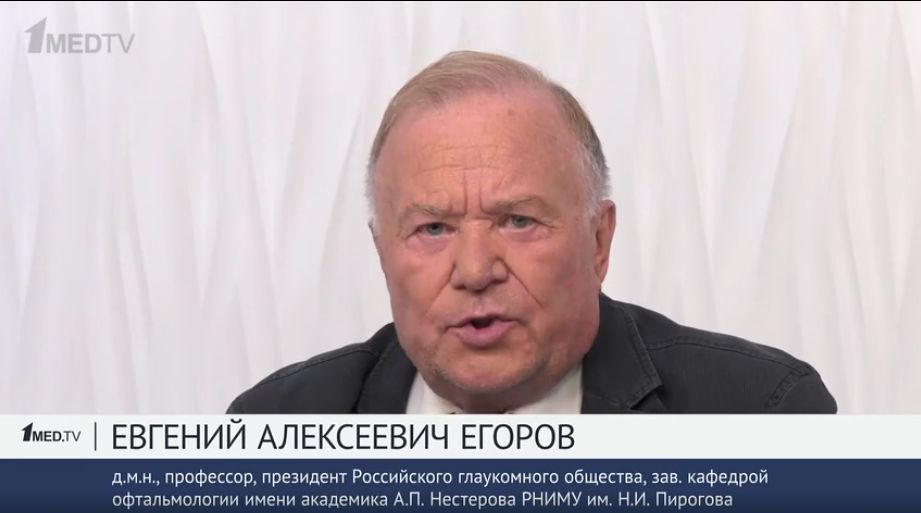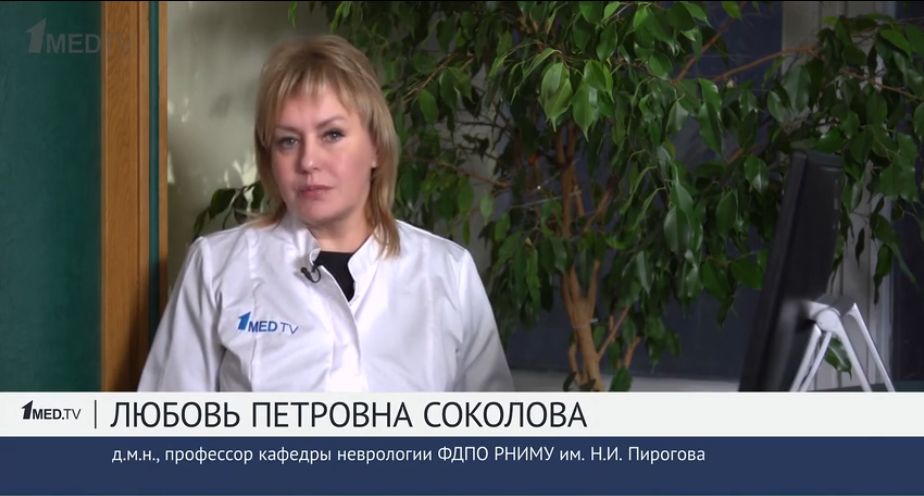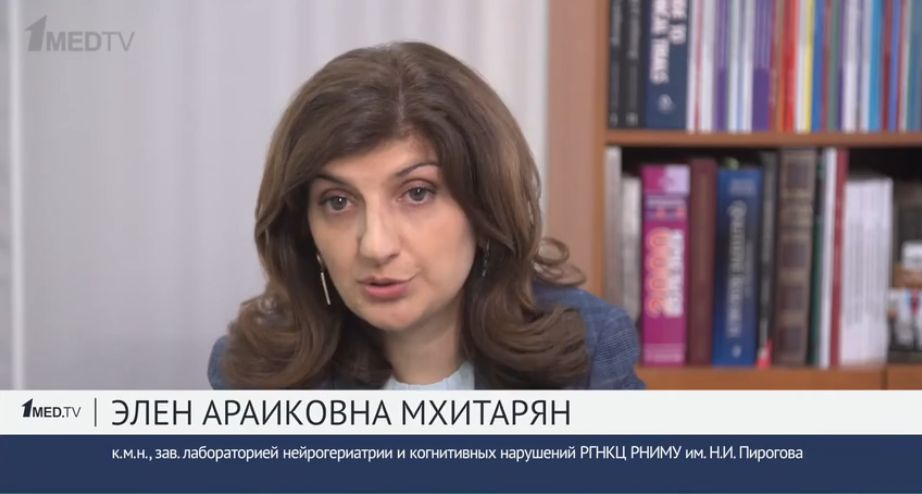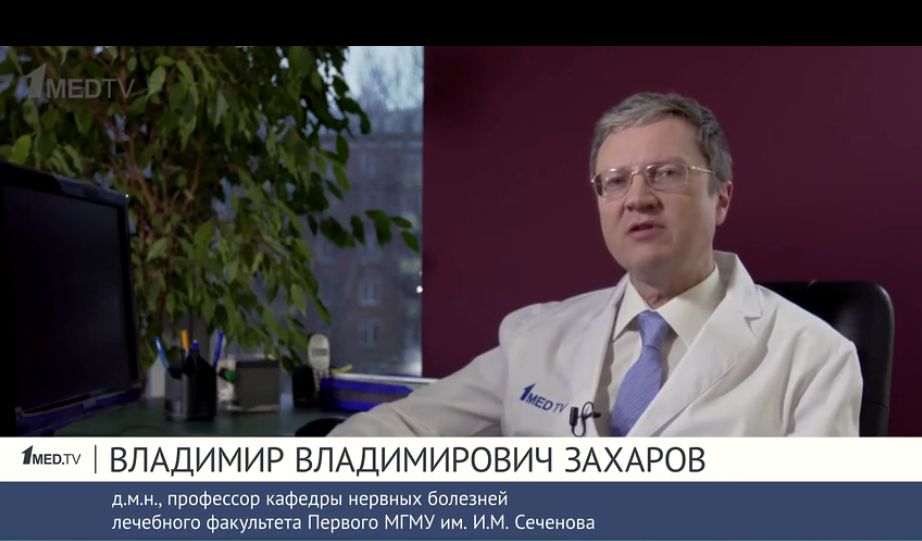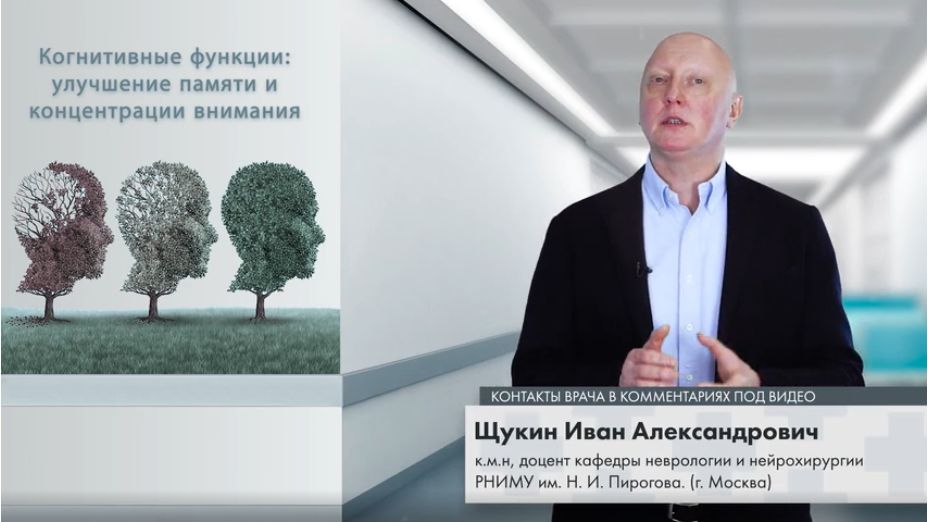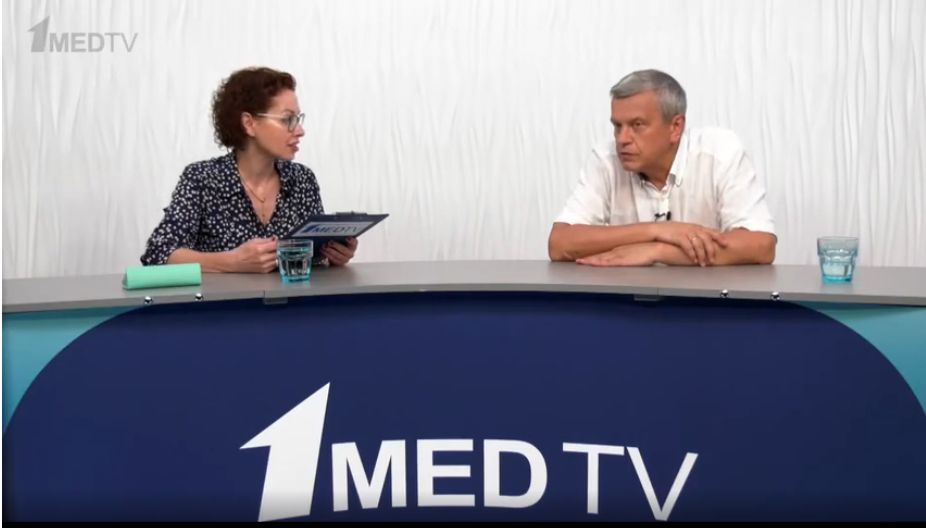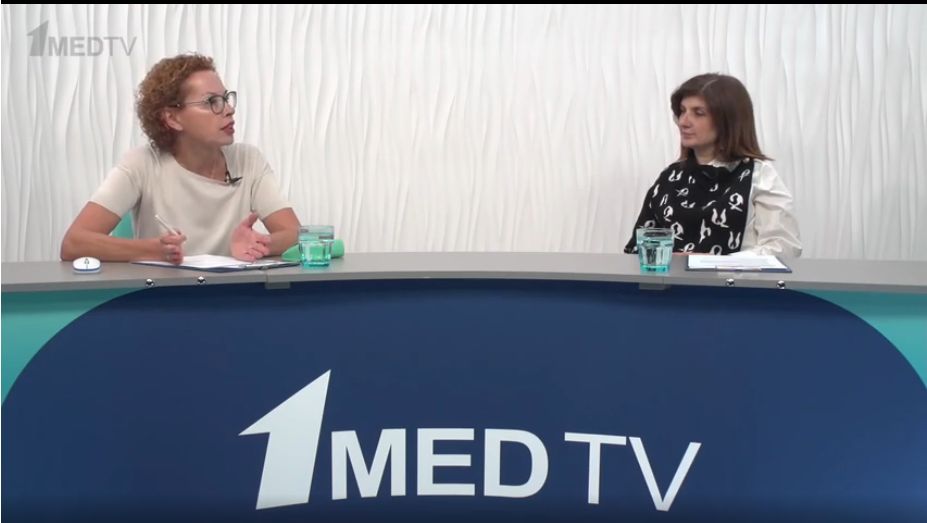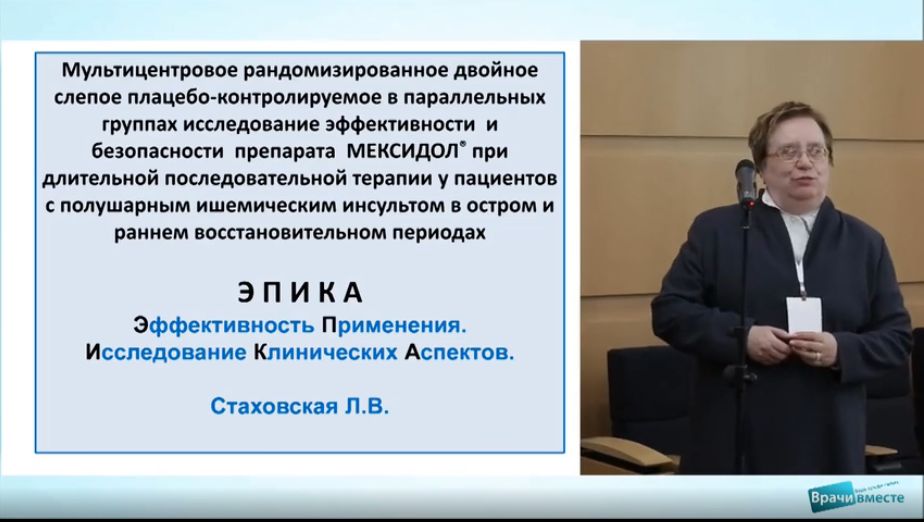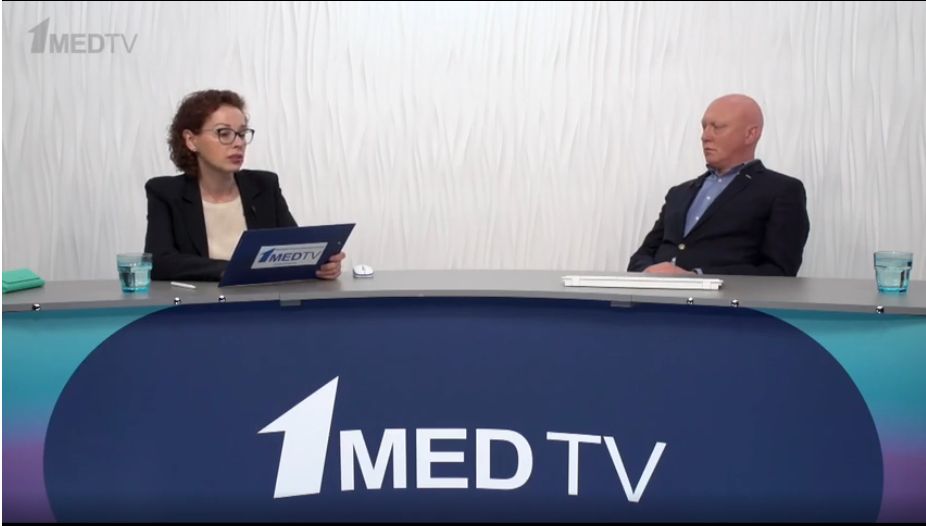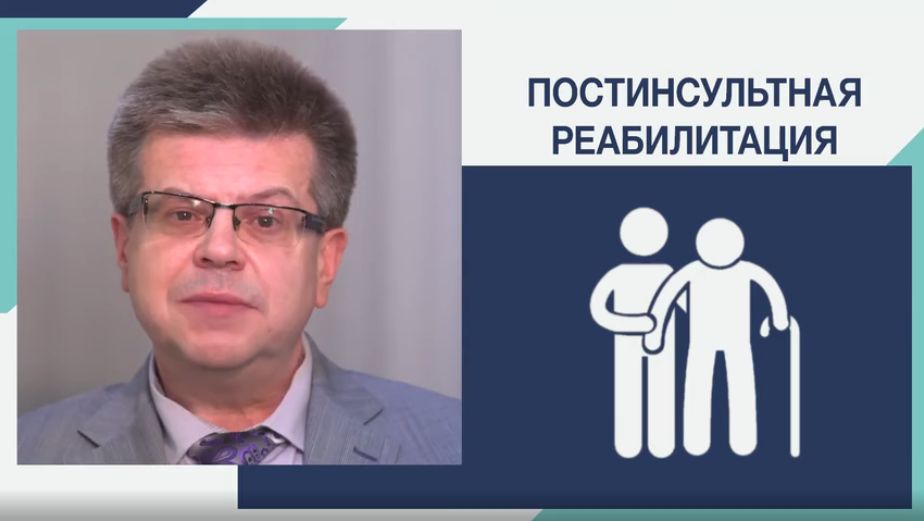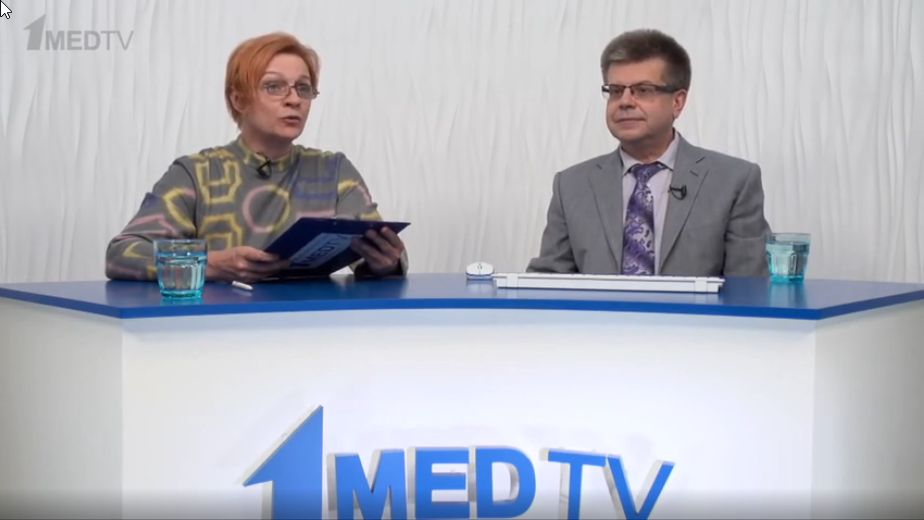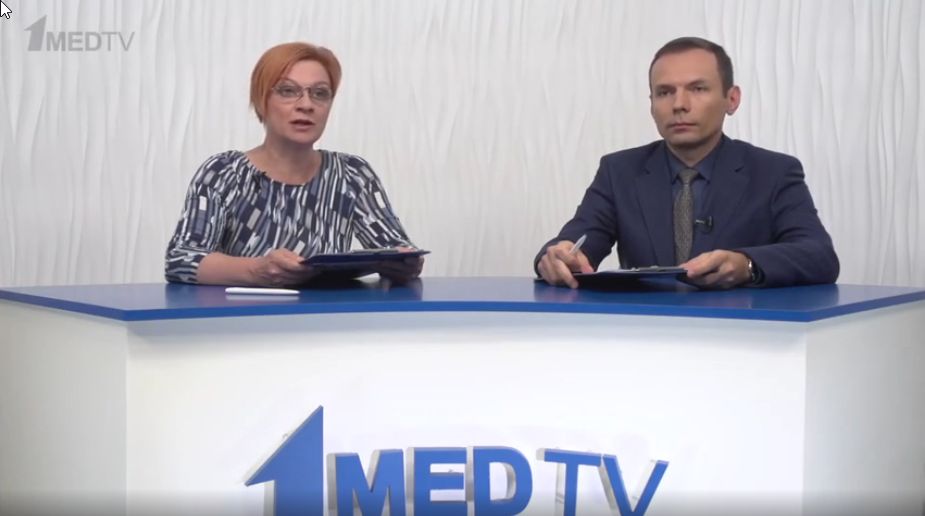Expert opinion on the drug Mexidol®
This section contains videos with the opinions of leading experts of the Russian Federation, which details the issues of effective comprehensive therapy of patients after a stroke, coronaviral infection, with chronic brainstream and degenerative diseases of the spine, presented the features of elderly and coomorbitis patients, and also presents data on the effectiveness of the efficiency Mexidol® in therapy of such patients.
Nosology filter
Filter on the topics
All videos
Neuroprotection in arterial hypertension and cognitive impairment
Lecturer: Vadim Vitalievich Tyrenko , MD, Professor, Head of the Department of Faculty Therapy at the S.M. Kirov Military Medical Academy, Chief Cardiologist of the Russian Ministry of Defense, Chief Pulmonologist of the Healthcare Committee of the Government of St. Petersburg
The Connection Between Vascular Diseases of the Brain and Eye: A Neurologist and Ophthalmologist's Perspective
Lecturers: Evgeniya Viktorovna Yekusheva, MD, PhD, Professor, Head of the Department of Nervous System Diseases and Neurorehabilitation, Academy of Postgraduate Education, Federal Scientific and Clinical Center of the Federal Medical and Biological Agency of Russia
Egorov Evgeniy Alekseevich - Doctor of Medical Sciences, Professor, President of the Russian Glaucoma Society, Head. Department of Ophthalmology named after. Academician A.P. Nesterov RNRMU named after. N.I. Pirogov
Ischemic stroke: clinical guidelines and practical aspects
Lecturers: Evgeniya Viktorovna Ekusheva, MD, Professor, Head of the Department of Nervous System Diseases and Neurorehabilitation, Academy of Postgraduate Education, Federal Scientific and Clinical Center of the Federal Medical and Biological Agency of Russia; Ivan Aleksandrovich Shchukin, MD, PhD, Associate Professor, Department of Neurology, Neurosurgery, and Medical Genetics, Faculty of Medicine, N.I. Pirogov Russian National Research Medical University
NIHSS and mRS: Gold Standards in Neuroscience
Lecturer: Ketevan Sergeevna Meshkova , PhD, Associate Professor of the Department of Neurology, Neurosurgery and Medical Genetics of the Institute of Neurosciences and Neurotechnology of the N.I. Pirogov Russian National Research Medical University of the Ministry of Health of the Russian Federation.
Cognitive impairment caused by arterial hypertension: from clinical guidelines to practical algorithms
Evgeniya Viktorovna Yekusheva , Doctor of Medical Sciences, Professor, Head of the Department of Nervous System Diseases and Neurorehabilitation at the Academy of Postgraduate Education of the Federal Scientific and Clinical Center of the Federal Medical and Biological Agency of Russia
Meshkova Ketevana Sergeevna - PhD, Associate Professor of the Department of Neurology, Neurosurgery and Medical Genetics of the Institute of Neurosciences and Neurotechnology of the N.I. Pirogov Russian National Research Medical University of the Ministry of Health of the Russian Federation
The brain is a target organ for arterial hypertension: features of management of the elderly patient
Yulia Viktorovna Kotovskaya , Doctor of Medical Sciences, Professor, Deputy Director for Research at the Russian Scientific and Clinical Center of the Federal State Autonomous Educational Institution of Higher Education, the N.I. Pirogov Russian National Research Medical University of the Ministry of Health of the Russian Federation, and Head of the Department for the Implementation of the Functions of the National Medical Research Center for Geriatrics
Autonomic dysfunction and arterial hypertension: together or instead?
Ebzeeva Elizaveta Yuryevna - PhD, therapist, psychotherapist, associate professor of the Department of Therapy and Polymorbid Pathology named after Academician M.S. Vovsi, Federal State Budgetary Educational Institution of Higher Professional Education, Russian Medical Academy of Postgraduate Education, Ministry of Health of the Russian Federation
Neuro-ophthalmology in an interdisciplinary context: a dialogue between a neurologist and an ophthalmologist
Evgeniya Viktorovna Yekusheva , Doctor of Medical Sciences, Professor, Head of the Department of Nervous System Diseases and Neurorehabilitation at the Academy of Postgraduate Education of the Federal Scientific and Clinical Center of the Federal Medical and Biological Agency of Russia
Loskutov Igor Anatolyevich - Doctor of Medical Sciences, Head of the Scientific Department and Department of Ophthalmology and Optometry of the State Budgetary Institution of Healthcare of the Moscow Region MONIKI named after. M.F. Vladimirsky
Attention deficit hyperactivity disorder in the practice of a pediatrician and child neurologist
Svetlana Aleksandrovna Chekalova , MD, PhD, Associate Professor, Neurologist, Family Medical Centers Network No. 1 LLC
Post-Stroke Care: What Can a Physician Do?
Shishkova Veronika Nikolaevna - MD, Professor of the Department of Outpatient Therapy of the Faculty of Advanced Medical Studies, State Budgetary Healthcare Institution of the Moscow Region, Moscow Regional Scientific Research Institute named after M.F. Vladimirsky, Professor of the Department of Neuro- and Pathopsychology of the Institute of Psychology named after L.S. Vygotsky, Federal State Budgetary Educational Institution of Higher Education, Russian State University for the Humanities
Vitaly Vladimirovich Kovalchuk , Doctor of Medical Sciences, Professor, Honored Doctor of the Russian Federation, Chairman of the Society of Rehabilitation Specialists of St. Petersburg, Head of the Medical Rehabilitation Center, Head of the Department of Rehabilitation of Patients with CNS Disorders of St. Petersburg State Budgetary Healthcare Institution "City Hospital No. 38"
Key milestones in the treatment of cerebrovascular diseases: a current algorithm
Galina Nikolaevna Belskaya , Doctor of Medical Sciences, Professor, Head of the Multidisciplinary Clinical Diagnostic Center of the Russian Center for Neurology and Neurosciences
Cerebrovascular and Ocular Diseases: Collaboration Between a Neurologist and an Ophthalmologist
Anatoly Ivanovich Fedin , MD, professor, head of the university's neurology clinic, honorary head of the department at Pirogov University, scientific director of the First Rehabilitation Clinic in Khamovniki, and honored physician of Russia
Natalia Ivanovna Kurysheva - Doctor of Medical Sciences, Professor, Head of the Department of Eye Diseases at the MBU INO, Professor of the Department of Ophthalmology at the APO FSBI FSBI FSCC FMBA of Russia, Head of the Clinical and Domestic Optometry Center of the FMBA of Russia, Member of the European Glaucoma Society and the American Academy of Ophthalmology
Original and generic drugs: selection criteria, what a pharmacist needs to know
Svetlana Vadimovna Talashova - Candidate of Pharmaceutical Sciences, Associate Professor, pharmacologist, social psychologist
Problems of vascular pathology of the brain in the concept of cerebrometabolic health
Antonova Ksenia Valentinovna - MD, PhD, endocrinologist, leading researcher at the Federal State Budgetary Scientific Institution "Russian Center for Neurology and Neurosciences"
Polymorbid patient with hypertension and cognitive impairment. Modern principles of treatment
Ostroumova Olga Dmitrievna - Doctor of Medical Sciences, Professor, Head of the Department of Therapy and Polymorbid Pathology named after Academician M.S. Vovsi, Federal State Budgetary Educational Institution of Higher Professional Education RMANPO of the Ministry of Health of the Russian Federation
Peculiarities of management of elderly patients with chronic cerebral ischemia
Mkhitaryan Elen Araikovna - PhD, Associate Professor of the Department of Aging Diseases of the Faculty of Continuing Professional Education of the Russian National Research Medical University named after N.I. Pirogov of the Ministry of Health of the Russian Federation, Head of the Laboratory of Neurogeriatrics of the Russian Scientific and Clinical Center
Evgeniya Viktorovna Yekusheva - MD, PhD, Professor, Head of the Department of Nervous Diseases and Neurorehabilitation of the Academy of Postgraduate Education of the Federal State Budgetary Institution Federal Scientific and Clinical Center of the Federal Medical and Biological Agency of Russia
Methods for assessing the vegetative status in a patient with hypertension: from theory to practice
Ebzeeva Elizaveta Yuryevna - PhD, therapist, psychotherapist, associate professor of the Department of Therapy and Polymorbid Pathology named after Academician M.S. Vovsi, Federal State Budgetary Educational Institution of Higher Professional Education, Russian Medical Academy of Postgraduate Education, Ministry of Health of the Russian Federation
Pathogenetic analysis of cognitive impairment in comorbid patients as a basis for rational therapy
Zhivolupov Sergey Anatolyevich - Doctor of Medical Sciences, Professor, Expert of the Russian Academy of Sciences, Professor of the Department of Nervous Diseases of the S.M. Kirov Military Medical Academy, Vice-President of the Eurasian Association of Neurologists, St. Petersburg
Brain in Focus of Arterial Hypertension: Minimizing Negative Prognosis
Tyrenko Vadim Vitalievich - Doctor of Medical Sciences, Professor, Head of the Department of Faculty Therapy of the S.M. Kirov Military Medical Academy, Chief Cardiologist of the Ministry of Defense of the Russian Federation, Chief Pulmonologist-Therapist of the Health Committee of the Government of St. Petersburg
Anxiety in General Clinical Practice
Shishkova Veronika Nikolaevna - MD, Professor of the Department of Outpatient Therapy of the Faculty of Advanced Medical Studies, State Budgetary Healthcare Institution of the Moscow Region, Moscow Regional Scientific Research Institute named after M.F. Vladimirsky, Professor of the Department of Neuro- and Pathopsychology of the Institute of Psychology named after L.S. Vygotsky, Federal State Budgetary Educational Institution of Higher Education, Russian State University for the Humanities
Prevention and treatment of chronic heart failure. Possibilities of cytoprotective therapy
Mikhin Vadim Petrovich - MD, PhD, Professor, Head of the Department of Internal Medicine No. 2 of the Federal State Budgetary Educational Institution of Higher Education Kazan State Medical University of the Ministry of Health of the Russian Federation, Honored Doctor of the Russian Federation, Member of the Presidium of the Russian Scientific and Medical Society of the Russian Federation
Complex approach in treatment of hypertension. Prevention of damage to target organs. Role and possibilities of cytoprotective therapy
Mikhin Vadim Petrovich - MD, PhD, Professor, Head of the Department of Internal Medicine No. 2 of the Federal State Budgetary Educational Institution of Higher Education Kazan State Medical University of the Ministry of Health of the Russian Federation, Honored Doctor of the Russian Federation, Member of the Presidium of the Russian Scientific and Medical Society of the Russian Federation
Differentiated strategies of cerebroprotection in arterial hypertension: focus on proven efficacy
Kochetkov Aleksey Ivanovich - PhD, functional diagnostics physician, associate professor of the Department of Therapy and Polymorbid Pathology named after Academician M.S. Vovsi, Federal State Budgetary Educational Institution of Higher Professional Education, Russian Medical Academy of Postgraduate Education, Ministry of Health of the Russian Federation
Current approaches to managing children with ADHD
Gainetdinova Dina Damirovna - Academician of the Academy of Sciences of the Republic of Tatarstan, Doctor of Medical Sciences, Professor of the Department of Neurology of the Federal State Budgetary Educational Institution of Higher Education Kazan State Medical University of the Ministry of Health of the Russian Federation, Honored Doctor of the Russian Federation
Information portal Neuroreab.ru and community on VKontakte — expertise in the field of cerebrovascular diseases
Shulyndin Aleksey Vadimovich - PhD, assistant of the department of neurology, psychiatry and narcology of the faculty of additional professional education of the Federal State Budgetary Educational Institution of Higher Education "Primary Medical University" of the Ministry of Health of the Russian Federation
Dialogues with experts. Cognitive impairment in patients as an interdisciplinary problem
Vladimir Vladimirovich Zakharov - Doctor of Medical Sciences, Professor of the Department of Nervous Diseases and Neurosurgery of the N.V. Sklifosovsky Institute of Cardiology and Microbiology of the First Moscow State Medical University named after I.M. Sechenov of the Ministry of Health of the Russian Federation (Sechenov University)
Bogolepova Anna Nikolaevna - MD, Professor of the Department of Neurology, Neurosurgery and Medical Genetics of the Federal State Autonomous Educational Institution of Higher Education Russian National Research Medical University named after N.I. Pirogov of the Ministry of Health of the Russian Federation, Head of the Department of Cognitive Impairments of the Federal State Budgetary Institution Federal Center for Medical Sciences of the Federal Medical and Biological Agency of Russia
Peculiarities of managing patients with CVD against the background of metabolic syndrome and diabetes mellitus
Ekusheva Evgeniya Viktorovna - Doctor of Medical Sciences, Professor, Head of the Department of Nervous Diseases and Neurorehabilitation of the Academy of Postgraduate Education of the Federal State Budgetary Institution Federal Scientific and Clinical Center of the Federal Medical and Biological Agency of Russia
Tyrenko Vadim Vitalievich - Doctor of Medical Sciences, Professor, Head of the Department of Faculty Therapy of the S.M. Kirov Military Medical Academy, Chief Cardiologist of the Ministry of Defense of the Russian Federation, Chief Pulmonologist-Therapist of the Health Committee of the Government of St. Petersburg
Polymorphism of clinical manifestations of CIM. Pathogenetic therapy
Bogolepova Anna Nikolaevna - MD, Professor of the Department of Neurology, Neurosurgery and Medical Genetics of the Federal State Autonomous Educational Institution of Higher Education Russian National Research Medical University named after N.I. Pirogov of the Ministry of Health of the Russian Federation, Head of the Department of Cognitive Impairments of the Federal State Budgetary Institution Federal Center for Medical Sciences of the Federal Medical and Biological Agency of Russia
Frail patient with cerebrovascular disease
Fedin Anatoly Ivanovich - MD, PhD, Honorary Professor, Head of the University Clinic of Neurology of the Federal State Autonomous Educational Institution of Higher Education Russian National Research Medical University named after N.I. Pirogov of the Ministry of Health of the Russian Federation, Scientific Director of the Rehabilitation Clinic in Khamovniki, Honored Doctor of the Russian Federation
Mkhitaryan Elen Araikovna - PhD, Head of the Laboratory of Neurogeriatrics, Russian Scientific and Clinical Center, N.I. Pirogov Russian National Research Medical University, Ministry of Health of the Russian Federation
Cognitive impairment in arterial hypertension
Fedin Anatoly Ivanovich - MD, PhD, Honorary Professor, Head of the University Clinic of Neurology of the Federal State Autonomous Educational Institution of Higher Education Russian National Research Medical University named after N.I. Pirogov of the Ministry of Health of the Russian Federation, Scientific Director of the Rehabilitation Clinic in Khamovniki, Honored Doctor of the Russian Federation
Shishkova Veronika Nikolaevna - MD, Professor of the Department of Outpatient Therapy of the Faculty of Advanced Medical Studies, State Budgetary Healthcare Institution of the Moscow Region, Moscow Regional Scientific Research Institute named after M.F. Vladimirsky, Professor of the Department of Neuro- and Pathopsychology of the Institute of Psychology named after L.S. Vygotsky, Federal State Budgetary Educational Institution of Higher Education, Russian State University for the Humanities
Actual strategies for neuroprotement in glaucoma
Egorov Evgeny Alekseevich - Doctor of Medical Sciences, Professor, Head of the Department of Ophthalmology named after Academician A.P. Nesterov, LF FSBEI HE RNIMU named after N.I. Pirogov, Ministry of Health of the Russian Federation, President of the Russian Glaucoma Society
Management of patients with chronic cerebrovascular pathology against the background of metabolic syndrome and diabetes mellitus
Ekusheva Evgeniya Viktorovna - Doctor of Medical Sciences, Professor, Head of the Department of Nervous Diseases and Neurorehabilitation of the Academy of Postgraduate Education of the Federal State Budgetary Institution Federal Scientific and Clinical Center of the Federal Medical and Biological Agency of Russia
Shishkova Veronika Nikolaevna - MD, Professor of the Department of Outpatient Therapy of the Faculty of Advanced Medical Studies, State Budgetary Healthcare Institution of the Moscow Region, Moscow Regional Scientific Research Institute named after M.F. Vladimirsky, Professor of the Department of Neuro- and Pathopsychology of the Institute of Psychology named after L.S. Vygotsky, Federal State Budgetary Educational Institution of Higher Education, Russian State University for the Humanities
Traumatic brain injury: issues of practical interaction between a neurologist and a psychiatrist
Kamchatnov Pavel Rudolfovich - Doctor of Medical Sciences, Professor of the Department of Neurology, Neurosurgery and Medical Genetics of the Faculty of Medicine of the Federal State Autonomous Educational Institution of Higher Education Russian National Research Medical University named after N.I. Pirogov of the Ministry of Health of the Russian Federation
Kurasov Evgeny Sergeevich - Doctor of Medical Sciences, Professor, Doctor of the highest category, psychiatrist, psychotherapist, narcologist, Head of the Psychiatry Clinic of the Federal State Budgetary Educational Institution of Higher Education "Military Medical Academy named after S.M. Kirov" of the Ministry of Defense of the Russian Federation
Therapeutic portrait of a patient with memory disorders
Shishkova Veronika Nikolaevna - MD, Professor of the Department of Outpatient Therapy of the Faculty of Advanced Medical Studies, State Budgetary Healthcare Institution of the Moscow Region, Moscow Regional Scientific Research Institute named after M.F. Vladimirsky, Professor of the Department of Neuro- and Pathopsychology of the Institute of Psychology named after L.S. Vygotsky, Federal State Budgetary Educational Institution of Higher Education, Russian State University for the Humanities
Glaucoma as an interdisciplinary problem
Ekusheva Evgeniya Viktorovna - Doctor of Medical Sciences, Professor, Head of the Department of Nervous Diseases and Neurorehabilitation of the Academy of Postgraduate Education of the Federal State Budgetary Institution Federal Scientific and Clinical Center of the Federal Medical and Biological Agency of Russia
Ilmira Rifovna Gazizova - MD, PhD, Scientific Secretary of the N.P. Bekhtereva Institute of the Chemistry of the Russian Academy of Sciences, ophthalmologist of the AKO clinic of the Institute of the Chemistry of the Russian Academy of Sciences, Scientific Secretary of the Russian Geographical Society, member of the Expert Council of the Russian Geographical Society, member of the Cooperation Committee of the EGO
Alcoholism as an interdisciplinary problem
Ekusheva Evgeniya Viktorovna - Doctor of Medical Sciences, Professor, Head of the Department of Nervous Diseases and Neurorehabilitation of the Academy of Postgraduate Education of the Federal State Budgetary Institution Federal Scientific and Clinical Center of the Federal Medical and Biological Agency of Russia
Kurasov Evgeny Sergeevich - Doctor of Medical Sciences, Professor, Doctor of the highest category, psychiatrist, psychotherapist, narcologist, Head of the Psychiatry Clinic of the Federal State Budgetary Educational Institution of Higher Education "Military Medical Academy named after S.M. Kirov" of the Ministry of Defense of the Russian Federation
Interdisciplinary issues in managing patients with anxiety
Shishkova Veronika Nikolaevna - MD, Professor of the Department of Outpatient Therapy of the Faculty of Advanced Medical Studies, State Budgetary Healthcare Institution of the Moscow Region, Moscow Regional Scientific Research Institute named after M.F. Vladimirsky, Professor of the Department of Neuro- and Pathopsychology of the Institute of Psychology named after L.S. Vygotsky, Federal State Budgetary Educational Institution of Higher Education, Russian State University for the Humanities
Kurasov Evgeny Sergeevich - Doctor of Medical Sciences, Professor, Doctor of the highest category, psychiatrist, psychotherapist, narcologist, Head of the Psychiatry Clinic of the Federal State Budgetary Educational Institution of Higher Education "Military Medical Academy named after S.M. Kirov" of the Ministry of Defense of the Russian Federation
Elderly patient in general practice: help, do no harm
Runikhina Nadezhda Konstantinovna - Doctor of Medical Sciences, Professor, Deputy Director for Geriatric Work at the Russian State Scientific and Clinical Center, Chief Specialist Geriatrician at the Health Department of Moscow
Mkhitaryan Elen Araikovna - PhD, Head of the Laboratory of Neurogeriatrics, Russian Scientific and Clinical Center, N.I. Pirogov Russian National Research Medical University, Ministry of Health of the Russian Federation
Glaucoma and age-related macular degeneration in clinical practice. Issues of interaction between a neurologist and an ophthalmologist
Ekusheva Evgeniya Viktorovna - Doctor of Medical Sciences, Professor, Head of the Department of Nervous Diseases and Neurorehabilitation of the Academy of Postgraduate Education of the Federal State Budgetary Institution Federal Scientific and Clinical Center of the Federal Medical and Biological Agency of Russia
Egorov Evgeny Alekseevich - Doctor of Medical Sciences, Professor, Head of the Department of Ophthalmology named after Academician A.P. Nesterov, LF FSBEI HE RNIMU named after N.I. Pirogov, Ministry of Health of the Russian Federation, President of the Russian Glaucoma Society
Rehabilitation after a stroke: what therapist needs to know
Shishkova Veronika Nikolaevna - Doctor of Medical Sciences, Professor of the Department of Outpatient Therapy of the Faculty of Advanced Medical Studies, State Budgetary Healthcare Institution of the Moscow Region, Moscow Regional Scientific Research Institute named after M.F. Vladimirsky, Professor of the Department of Neuro- and Pathopsychology of the Institute of Psychology named after L.S. Vygotsky, Federal State Budgetary Educational Institution of Higher Education, Russian State University for the Humanities.
The problem of motor and cognitive disorders in the post-stroke period
Katunina Elena Anatolyevna - Doctor of Medical Sciences, Professor, Head of the Department of Neurodegenerative Diseases of the Federal State Budgetary Institution "Federal Center of Medical Sciences" of the Federal Medical and Biological Agency of Russia, Professor of the Department of Neurology, Neurosurgery and Medical Genetics of the Federal State Autonomous Educational Institution of Higher Education "RNIMU N.I. Pirogov" of the Ministry of Health of Russia.
Dialogues with experts "Arterial hypertension and the brain as a target organ"
Tyrenko Vadim Vitalievich - Doctor of Medical Sciences, Professor, Head of the Department of Faculty Therapy of the S.M. Kirov Military Medical Academy, Chief Cardiologist of the Ministry of Defense of the Russian Federation, Chief Freelance Pulmonologist of the Health Committee of the Government of St. Petersburg.
Evgeniya Viktorovna Ekusheva - Doctor of Medical Sciences, Professor, Head of the Department of Nervous Diseases and Neurorehabilitation of the Academy of Postgraduate Education of the Federal State Budgetary Institution Federal Scientific and Clinical Center of the Federal Medical and Biological Agency of Russia.
Brain protection in arterial hypertension: what we have
Tyrenko Vadim Vitalievich - Doctor of Medical Sciences, Professor, Head of the Department of Faculty Therapy of the S.M. Kirov Military Medical Academy, Chief Cardiologist of the Ministry of Defense of the Russian Federation, Chief Freelance Pulmonologist of the Health Committee of the Government of St. Petersburg.
Evgeniya Viktorovna Ekusheva - Doctor of Medical Sciences, Professor, Head of the Department of Nervous Diseases and Neurorehabilitation of the Academy of Postgraduate Education of the Federal State Budgetary Institution Federal Scientific and Clinical Center of the Federal Medical and Biological Agency of Russia.
Prognostic value of biomarkers in ischemic stroke
Lecturer: Shchukin Ivan Aleksandrovich - PhD, Associate Professor of the Department of Neurology, Neurosurgery and Medical Genetics of the Leningrad Branch of the N.I. Pirogov Russian National Research Medical University.
The brain is a target organ of arterial hypertension
Kochetkov Aleksey Ivanovich - PhD, functional diagnostics physician, associate professor of the Department of Therapy and Polymorbid Pathology named after Academician M.S. Vovsi of the Federal State Budgetary Educational Institution of Higher Professional Education RMANPO of the Ministry of Health of the Russian Federation.
Evgeniya Viktorovna Ekusheva - Doctor of Medical Sciences, Professor, Head of the Department of Nervous Diseases and Neurorehabilitation of the Academy of Postgraduate Education of the Federal State Budgetary Institution Federal Scientific and Clinical Center of the Federal Medical and Biological Agency of Russia.
Post-stroke neurorehabilitation - consensus of a neurologist and rehabilitation specialist
Fedin Anatoly Ivanovich - Doctor of Medical Sciences, Honorary Professor, Head of the University Clinic of Neurology of the Federal State Autonomous Educational Institution of Higher Education Russian National Research Medical University named after N.I. Pirogov of the Ministry of Health of the Russian Federation, Scientific Director of the Rehabilitation Clinic in Khamovniki, Honored Doctor of the Russian Federation.
Vitaly Vladimirovich Kovalchuk - MD, Professor, Honored Doctor of the Russian Federation, Chairman of the Society of Rehabilitation Specialists of St. Petersburg, Head of the Medical Rehabilitation Center, Head of the Department of Rehabilitation of Patients with CNS Disorders of the St. Petersburg State Healthcare Institution "City Hospital No. 38".
Ischemic stroke: pathogenesis, prognosis, features of patient management
Chukanova Elena Igorevna - Doctor of Medical Sciences, Professor of the Department of Neurology and Neurosurgery of the Faculty of Medicine of the Federal State Autonomous Educational Institution of Higher Education Russian National Research Medical University named after N.I. Pirogov of the Ministry of Health of the Russian Federation.
Chukanova Anna Sergeevna - PhD, Associate Professor of the Department of Neurology and Neurosurgery of the Faculty of Medicine of the Pirogov Russian National Research Medical University of the Ministry of Health of the Russian Federation.
Evgeniya Viktorovna Ekusheva - Doctor of Medical Sciences, Professor, Head of the Department of Nervous Diseases and Neurorehabilitation of the Academy of Postgraduate Education of the Federal State Budgetary Institution Federal Scientific and Clinical Center of the Federal Medical and Biological Agency of Russia.
Post -stroke rehabilitation and prevention of re -stroke
Fedin Anatoly Ivanovich - MD, Honorary Professor, Head of the University Clinic of Neurology FGAOU in RNMMU named after N.I. Pirogov of the Ministry of Health of Russia, the scientific director of the Clinic of Rehabilitation in Khamovniki, Honored Doctor of the Russian Federation.
Natalya Aleksandrovna Suponeva -MD, professor, corresponding member of the Russian Academy of Sciences, head. department of neurorebilitation and physiotherapy of the scientific center of neurology (FGBNU NCN).
Syndrome of attention deficit with hyperactivity as an interdisciplinary problem. Mexidol® children with ADHD
Greek Severin Vyacheslavovich - MD, associate professor, head. Department of Psychiatry and Narcology of the FSBEI in St. Petersburg PMPMU of the Ministry of Health of Russia
Suvorinova Natalya Yuryevna - Ph.D., Associate Professor of the Department of Neurology, Neurosurgery and Medical Genetics named after Acad. L.O. Badalyana PF FGAOU in RNIMU them. N.I. Pirogova of the Ministry of Health of Russia, neurologist KDC RDKB
Age continuum of ischemic-hypoxic lesions of the brain. The use of Mexidol for ADHD in children and adults
Fedin Anatoly Ivanovich - MD, honorary professor, head of the university clinic of neurology RNIMU named after N.I. Pirogova, Honored Doctor of the Russian Federation
Chuitko Leonid Semenovich - MD, professor, head of the Center for the Human Studies of the Human Institute named after N.P. Bekhterev wounds
Rehabilitation after COVID-19: the use of Mexidol® in the treatment of post-COVID disorders
Ekusheva Evgenia Viktorovna - MD, professor, head. Department of Nervous Diseases and Neurorebition of the Academy of Postgraduate Education of the Federal State Budgetary Educational Institution of the FGBC FMBA of Russia
Kovalchuk Vitaly Vladimirovich -MD, professor, chairman of the Society of Rehabilitologists of St. Petersburg, head. department of neurological rehabilitation of St. Petersburg GBUZ "City Hospital No. 38 named after N.A. Semashko "
Mexidol®. Rehabilitation after coronavirus
Kovalchuk Vitaly Vladimirovich -MD, professor, chairman of the Society of Rehabilitologists of St. Petersburg, head. department of neurological rehabilitation of St. Petersburg GBUZ "City Hospital No. 38 named after N.A. Semashko "
The effectiveness of Mexidol in a comorbid patient: with arterial hypertension, coronary heart disease, brain ischemia
Ekusheva Evgenia Viktorovna - MD, professor, head. Department of Nervous Diseases and Neurorebition of the Academy of Postgraduate Education of the Federal State Budgetary Educational Institution of the FGBC FMBA of Russia
Mexidol's effectiveness in a polymorbid patient
Pereverzev Anton Pavlovich - Ph.D., Associate Professor of the Department of Therapy and Polymorbid Pathology of the Federal State Budgetary Institution of the DPO RMANPO of the Ministry of Health of Russia
Features of conducting elderly patients in clinical practice
Ostroumova Olga Dmitrievna - MD, professor, head. Department of Therapy and Polymorbid Pathology. Academician M.S. VLUSSi FSBEI DPO RMANPO of the Ministry of Health of Russia
Bogolepova Anna Nikolaevna - MD, professor of the Department of Neurology, Neurosurgery and Medical Genetics of Faculty of Faculty of FGAOU in RNIMU named after N.I. Pirogov of the Ministry of Health of Russia
Mexidol®-Anti-Age (anti-aging) drug
Pereverzev Anton Pavlovich - Ph.D., Associate Professor of the Department of Therapy and Polymorbid Pathology of the Federal State Budgetary Institution of the DPO RMANPO of the Ministry of Health of Russia
Dorsopathy in general clinical practice
Ostroumova Olga Dmitrievna - MD, professor, head. Department of Therapy and Polymorbid Pathology. Academician M.S. VLUSSi FSBEI DPO RMANPO of the Ministry of Health of Russia
Fedin Anatoly Ivanovich - MD, honorary professor, head of the university clinic of neurology RNIMU named after N.I. Pirogova, Honored Doctor of the Russian Federation
Mexidol® with degenerative diseases in the spine, neck pain, dizziness, brain ischemia
Fedin Anatoly Ivanovich - MD, honorary professor, head of the university clinic of neurology RNIMU named after N.I. Pirogova, Honored Doctor of the Russian Federation
Brain - target of arterial hypertension
Ostroumova Olga Dmitrievna - MD, professor, head. Department of Therapy and Polymorbid Pathology. Academician M.S. VLUSSi FSBEI DPO RMANPO of the Ministry of Health of Russia
Zakharov Vladimir Vladimirovich - MD, professor at the Department of Nervous Diseases Faculty of Medicine of the First MGMU named after THEM. Sechenov
Mexidol® for arterial hypertension (AG). AH and cognitive disorders, effective correction methods
Ostroumova Olga Dmitrievna - MD, professor, head. Department of Therapy and Polymorbid Pathology. Academician M.S. VLUSSi FSBEI DPO RMANPO of the Ministry of Health of Russia
Arterial hypertension and cognitive disorders. Mexidol's effectiveness
Ekusheva Evgenia Viktorovna - MD, professor, head. Department of Nervous Diseases and Neurorebition of the Academy of Postgraduate Education of the Federal State Budgetary Educational Institution of the FGBC FMBA of Russia
Kochetkov Alexey Ivanovich - Ph.D., associate professor of the Department of Therapy and Polymorbid Pathology named after Acad. M.S. VLUSSi FSBEI DPO RMANPO of the Ministry of Health of Russia
Alcoholism as an interdisciplinary problem
Ekusheva Evgenia Viktorovna - MD, professor, head. Department of Nervous Diseases and Neurorebition of the Academy of Postgraduate Education of the Federal State Budgetary Educational Institution of the FGBC FMBA of Russia
Kurasov Evgeny Sergeevich - MD, professor, doctor of the highest category, psychiatrist, psychotherapist, narcologist, head. Clinic of Psychiatry FGBVOU VO "Military Medical Academy named after CM. Kirov »Ministry of Defense of Russia
The use of Mexidol with alcoholic withdrawal syndrome (hangover)
Kurasov Evgeny Sergeevich - MD, professor, doctor of the highest category, psychiatrist, psychotherapist, narcologist, head. Clinic of Psychiatry FGBVOU VO "Military Medical Academy named after CM. Kirov »Ministry of Defense of Russia
Actual strategies for neuroprotement in glaucoma
Egorov Evgeny Alekseevich - MD, professor, president of the Russian glaucomal society, head. Department of ophthalmology named after Academician A.P. Nesterova Rnim them. N.I. Pirogov
Glaucoma and age -related macular degeneration in clinical practice
Ekusheva Evgenia Viktorovna - MD, professor, head. Department of Nervous Diseases and Neurorebition of the Academy of Postgraduate Education of the Federal State Budgetary Educational Institution of the FGBC FMBA of Russia
Egorov Evgeny Alekseevich - MD, professor, president of the Russian glaucomal society, head. Department of ophthalmology named after Academician A.P. Nesterova Rnim them. N.I. Pirogov
Mexidol® with glaucoma and age -related macular degeneration
Egorov Evgeny Alekseevich - MD, professor, president of the Russian glaucomal society, head. Department of ophthalmology named after Academician A.P. Nesterova Rnim them. N.I. Pirogov
Mexidol® for chronic brain ischemia / discirculatory encephalopathy
Sokolova Lyubov Petrovna - MD, professor of the Department of Neurology of the FDPO RNIMU named after N.I. Pirogov
Mexidol® in memory of memory, anxiety, decreased mood, depression
Mkhitaryan Helene Araikovna - Ph.D., Associate Professor of the Department of Diseases of Style FDPO RNEMU named after N.I. Pirogov MZ of the Russian Federation, head. Laboratory of Neuroheriatry of the RGNCC
The effectiveness of Mexidol® for cognitive disorders: decrease in memory, attention, performance
Zakharov Vladimir Vladimirovich - MD, professor at the Department of Nervous Diseases Faculty of Faculty of Medicine the First MGMU named after THEM. Sechenov
We will improve attention and memory, performance. The use of Mexidol for cognitive disorders
Schukin Ivan Aleksandrovich - Ph.D., Associate Professor of the Department of Neurology and Neurosurgery RNIMU named after N.I. Pirogov, Moscow
Cranial injury in clinical practice
Ekusheva Evgenia Viktorovna - MD, professor, head. Department of Nervous Diseases and Neurorebition of the Academy of Postgraduate Education of the Federal State Budgetary Educational Institution of the FGBC FMBA of Russia
Kamchatnov Pavel Rudolfovich - MD, professor of the Department of Neurology, Neurosurgery and Medical Genetics of the Faculty of Medicine RNIMU named after N.I. Pirogov
Features of conducting elderly patients with chronic brain ischemia
Ekusheva Evgenia Viktorovna - MD, professor, head. Department of Nervous Diseases and Neurorebition of the Academy of Postgraduate Education of the Federal State Budgetary Educational Institution of the FGBC FMBA of Russia
Mkhitaryan Helene Araikovna - Ph.D., Associate Professor of the Department of Diseases of Style FDPO RNEMU named after N.I. Pirogov MZ of the Russian Federation, head. Laboratory of Neuroheriatry of the RGNCC
Epica. Study of the effectiveness and safety of Mexidol in the treatment of strokes
Stakhovskaya Lyudmila Vitalievna - MD, professor, director of the Research Institute of Cerebrovascular pathology and stroke, department of fundamental and clinical neurology and neurosurgery of the IMF RNIMU named after N.I. Pirogov
The results of the study of memo - effectiveness and safety of the drug Mexidol®
Zakharov Vladimir Vladimirovich - MD, professor at the Department of Nervous Diseases Faculty of Medicine of the First MGMU named after THEM. Sechenov
Stroke in the Covid-19 era
Ekusheva Evgenia Viktorovna - MD, professor, head. Department of Nervous Diseases and Neurorebition of the Academy of Postgraduate Education of the Federal State Budgetary Educational Institution of the FGBC FMBA of Russia
Schukin Ivan Aleksandrovich - Ph.D., Associate Professor of the Department of Neurology, Neurosurgery and Medical Genetics LF RNIMU named after N.I. Pirogov
Mexidol®. Rehabilitation after a stroke
Kovalchuk Vitaly Vladimirovich -MD, professor, chairman of the Society of Rehabilitologists of St. Petersburg, head. department of neurological rehabilitation of St. Petersburg GBUZ "City Hospital No. 38 named after N.A. Semashko "
Post-stroke rehabilitation: evidence base for the drug Mexidol®
Ostroumova Olga Dmitrievna - MD, professor, head. Department of Therapy and Polymorbid Pathology. Academician M.S. VLUSSi FSBEI DPO RMANPO of the Ministry of Health of Russia
Kovalchuk Vitaly Vladimirovich -MD, professor, chairman of the Society of Rehabilitologists of St. Petersburg, head. department of neurological rehabilitation of St. Petersburg GBUZ "City Hospital No. 38 named after N.A. Semashko "
Comorbid patient
Ostroumova Olga Dmitrievna - MD, professor, head. Department of Therapy and Polymorbid Pathology. Academician M.S. VLUSSi FSBEI DPO RMANPO of the Ministry of Health of Russia
Pereverzev Anton Pavlovich - Ph.D., Associate Professor of the Department of Therapy and Polymorbid Pathology of the Federal State Budgetary Institution of the DPO RMANPO of the Ministry of Health of Russia
Mexidol®. Important differences from analogues
Schukin Ivan Aleksandrovich - Ph.D., Associate Professor of the Department of Neurology, Neurosurgery and Medical Genetics LF RNIMU named after N.I. Pirogov
Mexidol®. Evidence medicine: just about the complex.
Ekusheva Evgenia Viktorovna - MD, professor, head. Department of Nervous Diseases and Neurorebition of the Academy of Postgraduate Education of the Federal State Budgetary Educational Institution of the FGBC FMBA of Russia
Schukin Ivan Aleksandrovich - Ph.D., Associate Professor of the Department of Neurology, Neurosurgery and Medical Genetics LF RNIMU named after N.I. Pirogov
Mexidol® — standard of antioxidant neurocytoprotection
Oganov Rafael Gegamovich - MD, academician of the Russian Academy of Sciences, professor, honorary president of the Russian Cardiological Society
Voronina Tatyana Aleksandrovna - MD , professor, head. Laboratory of psychopharmacology of the FSBBNU of the Nii pharmacology named after V.V. Kaszova
Fedin Anatoly Ivanovich - MD, honorary professor, head of the university clinic of neurology RNIMU named after N.I. Pirogova, Honored Doctor of the Russian Federation
Zhivolupov Sergey Anatolyevich -MD, professor at the Department of Nervous Diseases of the Military Medical Academy named after CM. Kirov
Why Mexidol®: history of creation, mechanism of action, safety and effect
Schukin Ivan Aleksandrovich - Ph.D., Associate Professor of the Department of Neurology, Neurosurgery and Medical Genetics LF RNIMU named after N.I. Pirogov
